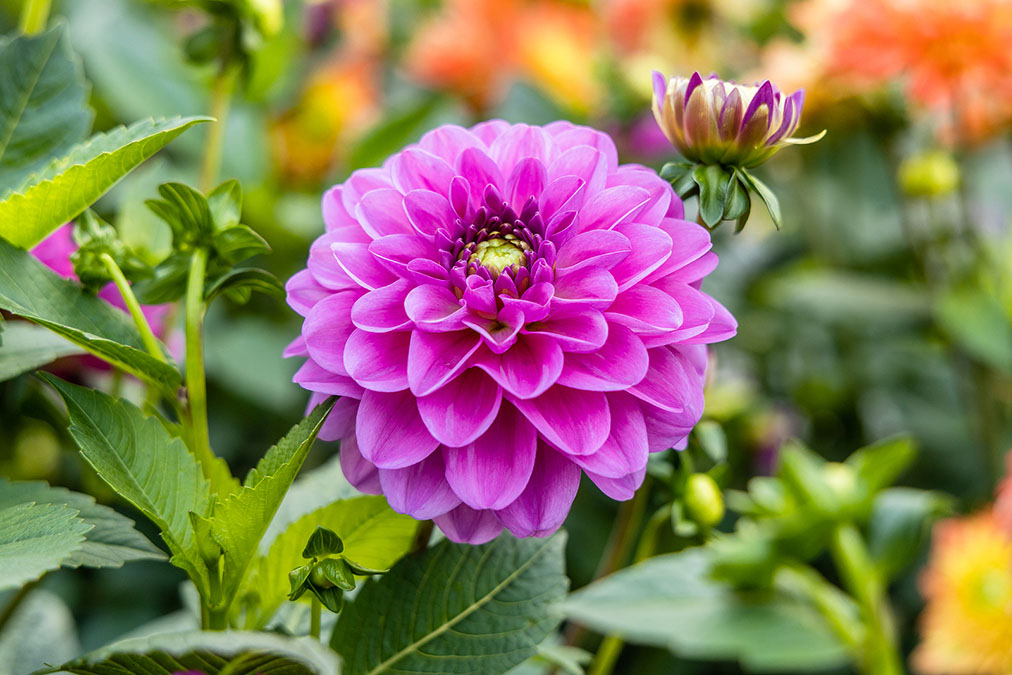 It’s beautiful, smells wonderful, and now, according to a new study in Life Metabolism, it can also heal type 2 diabetes.
It’s beautiful, smells wonderful, and now, according to a new study in Life Metabolism, it can also heal type 2 diabetes.
A few years ago, a team of scientists at the University of Otago made a significant breakthrough in diabetes research. They found that a chemical called butein could regulate glucose levels in our brains.
That finding was based on an 1855 discovery that our brains can control our bodies’ glucose.
The big problem, however, was that the best source of butein is a toxic plant called Toxicodendron vernicifluum, also called the Chinese lacquer tree. Scientists obviously cannot give diabetes patients a toxic source of this chemical, so the research died down for a while.
However, there is another good source of butein: dahlia flowers, which the researchers decided to investigate to see whether it had the same anti-diabetic effects as the toxic version. While toxic to dogs and cats, dahlia flowers are safe for human consumption.
The scientists performed their first study on mice by giving them the dahlia extract. These mice were eating a lot of fat, making them similar to overweight humans.
They then measured how well the mice handled sugar by giving them different amounts of the dahlia extract and measuring their sugar levels at various times.
They then tried to figure out which specific parts of the extract worked best.
What did they find?
-
1. The dahlia extract helped overweight mice maintain healthy glucose levels.
2. Although butein was a major part of the extract, it did not work well alone. It worked best when combined with one or both of two other substances in the dahlia flower called isoliquiritigenin and sulfuretin.
3. The extract made the mice more sensitive to insulin and blocked an inflammatory pathway in their brains that controls blood glucose.
This was a great discovery, as it proved that the dahlia plant was a better treatment for diabetes than the toxic lacquer tree because of these three chemicals occurring together.
The scientists then wanted to see whether this extract could help humans with high blood sugar levels. They tested it on 13 people who were either close to having diabetes or already had it. These people were, on average, around 56 years old.
The scientists gave the human participants different amounts of the dahlia extract and then checked their blood sugar levels.
The results showed that the extract helped reduce blood sugar levels, especially in people who already had diabetes. The more extract they took, the lower their blood sugar levels became.
The scientists also verified that the extract had no harmful effects on their subjects’ livers, kidneys, or general health.
Unfortunately, unless you have plenty of dahlia in your garden, you will have to wait for the extract that these scientists are currently testing before making it commercially available.

 Overcoming IBD
Overcoming IBD Multiple Sclerosis
Multiple Sclerosis Banishing Bronchitis
Banishing Bronchitis Gum Disease Gone
Gum Disease Gone Overcoming Onychomycosis
Overcoming Onychomycosis Neuropathy No More
Neuropathy No More The Prostate Protocol
The Prostate Protocol Brain Booster
Brain Booster
 Ironbound
Ironbound
 Solution for Shingles
Solution for Shingles
 The Bone Density Solution
The Bone Density Solution
 The Ultimate Healing Protocol
The Ultimate Healing Protocol
 The Parkinson's Protocol
The Parkinson's Protocol
 The Chronic Kidney Disease Solution
The Chronic Kidney Disease Solution
 Overthrowing Anxiety
Overthrowing Anxiety The Fatty Liver Solution
The Fatty Liver Solution The Hypothyroidism Solution
The Hypothyroidism Solution
 The End of Gout
The End of Gout The Blood Pressure Program
The Blood Pressure Program
 The Oxigized Cholesterol Strategy
The Oxigized Cholesterol Strategy
 Stop Snoring And Sleep Apnea Program
Stop Snoring And Sleep Apnea Program
 The Arthritis Strategy
The Arthritis Strategy The Vertigo & Dizziness Program
The Vertigo & Dizziness Program The 3-Step Diabetes Strategy
The 3-Step Diabetes Strategy Hemorrhoids Healing Protocol
Hemorrhoids Healing Protocol The Erectile Dysfunction Master
The Erectile Dysfunction Master Weight Loss Breeze
Weight Loss Breeze The IBS Program
The IBS Program The Insomnia Program
The Insomnia Program The Migraine and Headache Program
The Migraine and Headache Program The Neck Pain Solution
The Neck Pain Solution The Menopause Solution
The Menopause Solution The Ejaculation Master
The Ejaculation Master The TMJ Solution
The TMJ Solution The Acid Reflux Solution
The Acid Reflux Solution The Fibromyalgia Solution
The Fibromyalgia Solution The Psoriasis Strategy
The Psoriasis Strategy